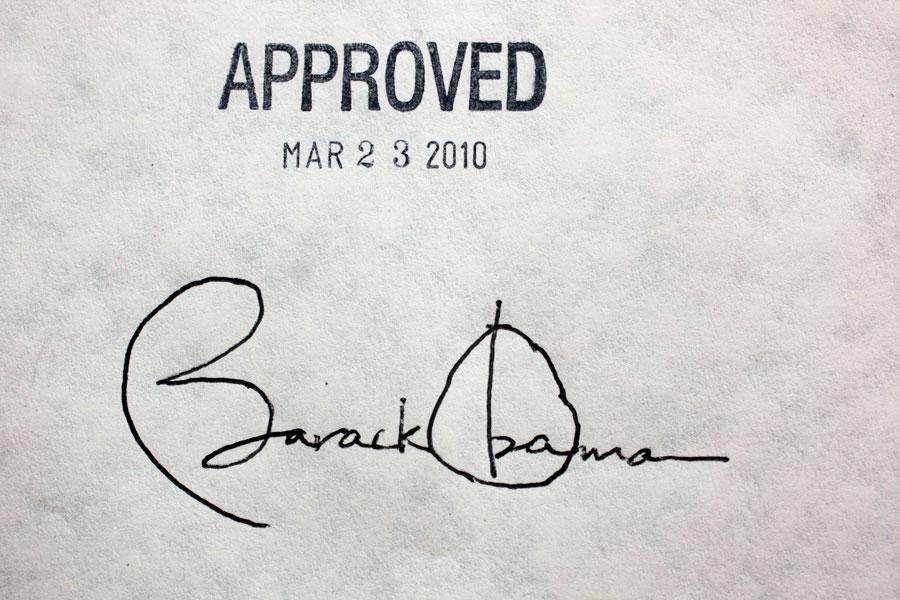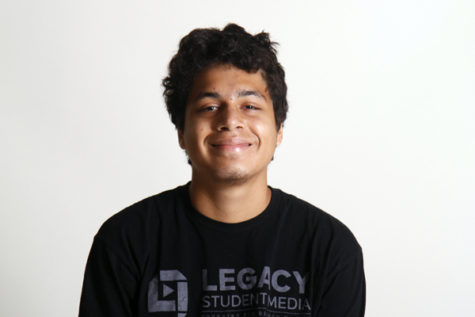Pain and uncertainty. Junior Danielle Morgan measures her days in empty stomachs and shouts from her parents as they dispute over a stack of bills. Even after the surgery, times have become no easier, the burden no lighter and the future no brighter — no matter how hard she tries to ignore it.
In November 2015, Morgan underwent spinal fusion surgery to treat her scoliosis. Prior to Morgan’s operation, everyday tasks came with difficulty. Deep breaths were accompanied by discomfort as her spine pressed against her lung, while the awkward placement of her hip brought further malaise.
“I have rods in my back, so that’s not fun,” Morgan said. “I definitely needed the surgery. The degree of my back was very not zero.”
But Morgan and her family’s woes didn’t snap to a halt at the end of her misaligned spine. Before the surgery even took place, a new headache began to take shape in the minds of the family already burdened by misfortune — funding. After a regular check-up with her pediatrician, Morgan, diagnosed with scoliosis, was sent for an X-ray, a procedure that would already foreshadow the financial nightmare that awaited. If the family could not afford the X-ray, how would the surgery be funded?
“That’s when I realized I have to take about five of these X-rays and then there’s the actual surgery,” Morgan said. “Then when my mom did some research on the cost — just no.”
With financial uncertainty looming, Morgan and her loved ones seemed lost. Her family had already experienced their fair share of medical burden with her father’s own illness and her sister’s case of Down Syndrome. At this point, the Morgan family found themselves at the whims of an issue that plagues the lives of countless individuals.
Millions of Americans can’t afford reliable healthcare.
Are they listening to their constituents and seeing all these people dying? Or do they just want this money to come back in and in again?
— Mr. Rabalais
But why is it expensive in the first place? The answer, in part, deals with wealth. Richer countries spend more on healthcare, as should be expected since more spending generally means better infrastructure. The United States, the richest country in the world, should probably spend the most. But even when accounting for the correlation with GDP, we as a nation spend way more than what should be expected. With an issue so complicated in its economics and political entanglements, it can be difficult to pinpoint exact explanations. But Mr. Craig Rabalais, AP Government and Economics teacher, studies the developments of these types of issues. He believes the reason lies in the greed of insurance companies and their pharma-funded congressional counterparts.
“The pharmaceutical companies, the insurance companies, everyone is on the interest groups’ payroll,” Mr. Rabalais said. “Are they listening to their constituents and seeing all these people dying? Or do they just want this money to come back in and in again?”
For their own sake, families like the Morgan’s hope the truth lies in the former. And in the defense of those decision-makers in Congress, the government has at least attempted to address this issue. Former President Barack Obama introduced The Affordable Care Act and promised bold improvements to the country’s healthcare situation. And for the most part, the legislation seemed to keep true to the President’s ambitions. Yet, the ACA has been no stranger to issues and mishaps. As a result, several Republican repeal efforts culminated in the proposal of the American Health Care Act which has yet to be voted on because of the lack of support in Congress.
But the technicalities of congressional stalemates, no matter how influential they were in her situation, held little importance for Morgan. Tormented and struck by pain, she needed the surgery but had no idea how her family could afford it. The situation, bleak from the threat of financial ruin, remained this way until fortune guided her ship to more tranquil waters.
“We asked my pediatrician and she referred me to Scottish Rite, a charity hospital,” Morgan said. “I don’t even know how I got a spot in the hospital — we’d be in debt to this day without them.”
Without the charity hospital, Morgan’s predicament would have most likely turned dire considering the proposed legislation. According to the Congressional Budget Office, the AHCA would reduce the number of insured but would not raise the Medicare levels. As a result, more people would be left to pay expensive bills out of their own pockets, and most are not destined to be as lucky as Morgan. But many, like Mr. Rabalais, think these hypotheticals deserve little consideration so long as gridlock prevails in Washington.
“I don’t care what’s better until you get both sides to come together with a bipartisan plan — until that happens, I don’t care who’s got a better plan, it’s gonna be shot down,” Mr. Rabalais said. “Whatever fix they put on there, it needs to be long-lasting.”
The effects of a lengthy ailment will last long into the lifetime of Morgan. Though, in the end, the family paid a meager $750 in surgery and treatment costs, physical consequences remain. Moreover, while the Morgans received significant support this time around, the family wasn’t so lucky in relation to other medical costs. The bills continue to pile up.
“My parents sometimes argue about it, we had to cut down on our groceries because of the bills,” Morgan said. “I wish they were gone.”
Hope for relief, free from a prison of debt, sometimes these liberties seem far out of reach. Though life goes on and optimism prevails, for the time being, Morgan dreams on. A reality where her family’s debt ceases its wretchedness exists not far from her wandering mind.
“It would be pretty substantial,” Morgan said. “I would be able to build my resume for my career — build a future.”




